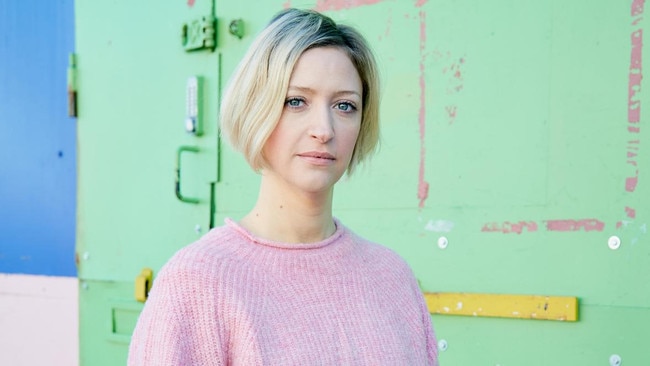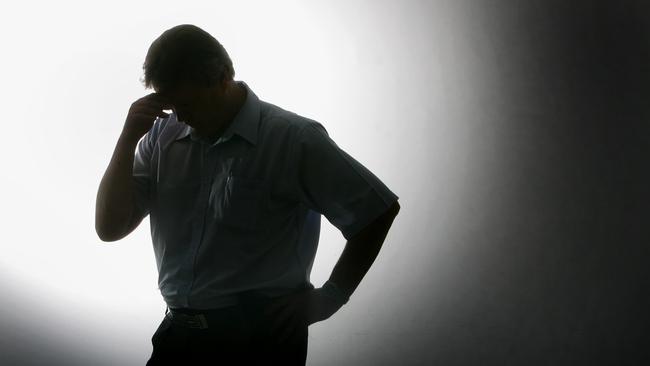Mental health and the pandemic: if you feel sad, it’s probably not depression
Despite the circumstances of a global pandemic, most people’s mental health is fine.

Cancer was once taboo. We whispered about the c-word and people slunk off to be ill in secrecy. Then campaigns began to end the stigma, hugely successful campaigns that have brought people forward for treatment and eased their isolation through it. What if, though, another outcome were possible? What if a campaign to end stigma ended up with a vast swathe of society believing they had cancer every time they felt rotten, while the minority of people who did have cancer felt swamped by the others? And those who felt rotten were so burdened by the idea that they may have something as serious as cancer that they felt worse too. Is this where we are with mental health?
Lucy Foulkes, 33, whose career is in academic psychology and who is at present attached to University College London, recently asked an undergraduate student how her friends discussed their moods. “She said everyone in her year group - more than a hundred students - self-identified as having depression or anxiety disorder or both.”
Foulkes was so struck by this that she had to try to understand it. Even with an expanding diagnostic definition of these illnesses, only a small minority of students would, statistically, meet the criteria for clinical depression or anxiety. Instead they were doing what so many of us seem to be doing, “liberally applying the psychiatric terminology that is now commonplace in our culture to more transient or low-level unhappiness or worry”, as she writes in her new book, Losing Our Minds.
“That was a real lightbulb moment,” Foulkes says on a video call. I imagine she is an entertaining lecturer; she is well versed in popular culture and analyses it in unfashionable ways. “Hang on, who is this conversation about mental health helping if the outcome is that everyone is interpreting their experiences as anxiety and depression?”
This book is a hard look at the past decade of “mental health awareness” in this country, which Foulkes identifies as beginning in earnest with the 2011 Time to Change campaign, which involved a blitz of national advertising and ambassadors such as Stephen Fry and Ruby Wax, later to be followed by Prince William and Prince Harry and a slew of confessionals in print and on screen.

The blunt aim of raising awareness across the board has been a success that Foulkes welcomes, but there has been, as she puts it, “collateral damage”. The most harrowing mental illnesses, from schizophrenia to bipolar disorder, are still not given much attention, let alone funding. They are “unpalatable and scary . . . The most debilitating disorders are still behind closed doors.”
Instead a broad mid-range of normal human emotions have been medicalised. People are “OCD” when we mean tidy or have PTSD after a visit to a smelly pub lavatory. She notices someone on Twitter saying that they had a “panic attack” while watching James Corden in Cats. While Corden wasn’t great in Cats, he probably didn’t cause viewers to suffer a panic attack in the true sense that they thought they were dying of heart failure.
These are comic exaggerations, but the effect is equally used to amplify and legitimise unhappiness. Michelle Obama said on her podcast that she found the difficulties of the lockdown “dispiriting”, and in the next breath said that this was equivalent to “low-grade depression”. What, Foulkes asks, would be the difference if Obama stopped at “dispiriting"?
“I don’t think there’s much room in society just to be sad right now,” Foulkes writes in the book. “The medicalisation of what should be considered normal helps no one.
“All forms of psychological distress are the price we pay for being alive . . . Let’s not add to our suffering by worrying that there is something wrong with us for feeling bad.”
This is a book that calls for nuance in answering difficult questions. For example, are mental health disorders soaring to “epidemic” levels, as we so regularly hear? They are not, she concludes. The best quality studies she cites have them climbing only by tiny amounts. For example, one study found that in 2004 the proportion of 5-to-15-year-olds with a diagnosable disorder was 10.1 per cent; by 2017 it had risen to 11.2 per cent.
And in the case of problems that are on the rise - for example, self-harm in teenagers - how can we talk about them in ways that help sufferers while not making things worse by adding to the established “contagion” effect? These two themes should be in our minds when considering the effects of lockdown; the message has been that our mental health, and especially that of young people, is at breaking point. When does a pervasive climate of doom become “self-looping”, causing more sorrow than it alleviates?
“It’s like survivor guilt,” she says. “You’re not allowed to say, ‘I’m actually fine.’ It’s almost like you’re supposed to be depressed right now. It’s not true. The majority of people have not taken a hit to their mental health in this last year. That doesn’t mean no one has - some individuals and groups absolutely have - but the message gets simplified to the pandemic causing a mental health crisis.”
At this point we have to tread carefully because at any moment a red-faced colonel is going to pop up like a jack-in-the-box and start ranting about today’s young being a “bunch of snowflakes”. Then mental health advocates will retaliate about the serious dangers of dismissing distress. To caricature: Piers Morgan versus the Duchess of Sussex. “I’m very much opposed to the Piers Morgan snowflake approach,” Foulkes says.
Every individual in distress is worthy of being believed and helped, she says. What needs changing is the conversation about the best help for the mid-range. Alongside medical evaluation, if necessary, she advocates for a deeper and more philosophical awareness of the cycling weather of human moods, that sadness and worry will always be with us and we can learn ways to manage them. It is wrong, and offers the young generation false hope, to suggest that these emotions are illnesses, because they cannot be treated in the way an illness can.
“I spoke to a university counsellor recently who said that more often now her job is trying to explain to students that the goal is not to make anxiety go away. We can’t do that.”
Foulkes is able to speak with confidence on both sides of the mentally ill/normally sad debate because she has lived both sides. Roughly speaking, the decade between 14 and 24 is the peak time for mental illness to emerge, caused by a complex interplay of genetic susceptibility and environment. When Foulkes was 17 she split up with her boyfriend. It hit her hard. She lost sleep, appetite, all sense of pleasure; she was “desperately sad”. Looking back she knows that she would have met some, if not all, of the criteria for depression. If she were a teenager now, this label would have been used by or about her. She now feels “glad” that no one applied this term. Certainly she could have used support and advice, “but absorbing ‘mental illness’ into my fundamental fabric could have been really unhelpful”, she writes.
She got over that heartbreak the way so many do, by crying, talking it over and slowly forcing herself to socialise. It was a passing period of deeply difficult “but very human sadness”. Contrast that to when Foulkes was 20 and living an idyllic life. She was studying psychology, the subject she loved, and had close friends and family. Yet worry about a health condition spiralled out of control in a way that frightened her. She felt she couldn’t breathe, that she was somehow not real. “I was a ghost in my own life, scared to be on my own.”
Foulkes was convinced and terrified that she would never recover. It took four months before she felt a “glimmer” of something that wasn’t depression or anxiety, and five years of medication and therapy to feel healed. During most of this she seemed to be on her own. It was 2008 and “no one talked about mental illness . . . no public conversation”. Her illness happened bang on the eve of the big cultural shift. “This pushed me to write the book. I was looking at these campaigns and thinking, ‘Would I have found this useful?’ Quite often I found myself saying, ‘No.’ ”
So does Foulkes feel lucky to have been mentally ill before the pervasive campaigns began to destigmatise mental illness for people like her? “It’s an interesting question. Broadly no because, for me, the experience itself was horrible but also compounded by an extreme fear about what was happening to me and what it would mean for me long-term.
“But I do also feel that at least I was taken seriously by the very few people I told. Whereas I worry now that it’s lost some of its currency for people who come forward and say, ‘I’m depressed’. They would say, ‘So’s everyone.’ ”

The other message she finds jarring is the “positive spin” put on mental illness, and she cites many well-meaning celebrities on social media, talking of “warriors” and “rainbows” and cute platitudes to “be your own reason to smile”. To many in the “gritty depths of a disabling disorder”, these words are infuriating.
“The primary thing my experience taught me was that mental illness is a horrible waste of time, energy and life. I’m not proud of the experience. I’m not ashamed of it either,” Foulkes writes.
What would be a message that would have helped? Foulkes says that mentally ill people crave recovery stories from people like them. “You can have periods of extreme mental distress and you can, and lots of people do, climb out of it,” she tells me. “That wasn’t available as a message. What I wouldn’t have found helpful was: ‘Everyone’s in a crisis.’ ”
Now, as a lecturer, Foulkes says the “sheer volume of students who self-identified with these problems made it very hard to distinguish what level of help was needed for whom”.
This is, of course, as she constantly reminds me, a messy business. Our understanding and treatments are still rudimentary. There is as yet no test for mental illness in the way that there is for cancer; there is no clarity around the borders of diagnosis. To Foulkes the way forward is in acceptance of a hard truth: we need to support everyone who is struggling in a way geared to their needs; we need a different conversation about managing life’s sadness.
This will involve increased funding for full-on medical support for some, and education about the time and effort it takes to endure life’s inevitable periods of shade for most others. And a sincere, not false, positivity. She would say to her 20-year-old self what she would say to anyone who is suffering: it won’t magically go away, but “it’s going to get better”.
Losing Our Minds: What Mental Illness Really Is and What it Isn’t, is published by Bodley Head







To join the conversation, please log in. Don't have an account? Register
Join the conversation, you are commenting as Logout